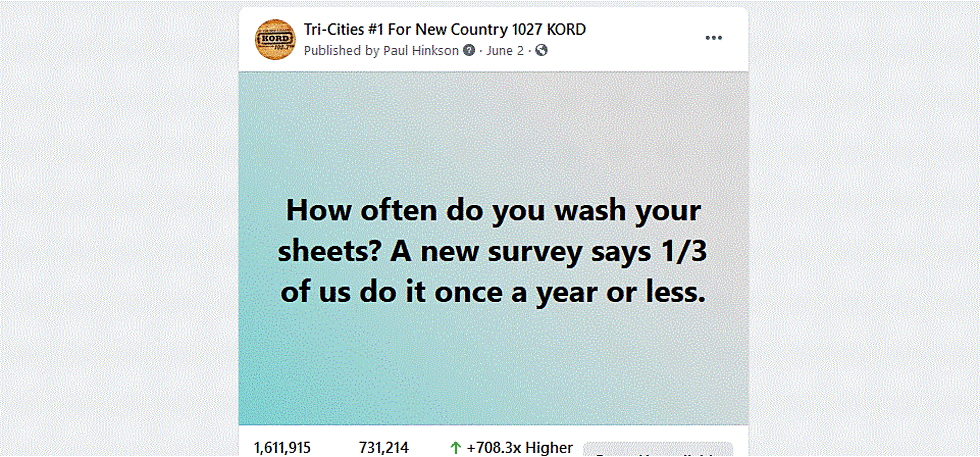![Did NCAA Overreact with Penn State Punishments? [POLL]](http://wac.450f.edgecastcdn.net/80450F/newstalk870.am/files/2012/07/Penn-State-football--300x200.jpg?w=980&q=75)
Did NCAA Overreact with Penn State Punishments? [POLL]
This has nothing to do with the despicable pedophile Jerry Sandusky. But rather, did the NCAA overreact in slamming Penn State with severe penalties?
While the top leadership as Penn State has been revamped, including the University President, in the wake of the Jerry Sandusky scandal, many are wondering if the NCAA overreacted. The school received severe penalties including: (from the Washington Post)
Penn State will lose 10 initial and 20 total scholarships over a four-year period. In addition, athletes will be free to transfer and retain immediate eligibility, prompting the possibility of a mass exodus as well as a feeding frenzy by other coaches.
Although the school avoided the death penalty, which would have shut the program down, the sanctions are so serious that it could take years for the program to recover.
The website Hot Air points out that perhaps the NCAA is overreacting, especially since their decisions will destroy the program and affect the lives of 85 scholarship players, as well as incoming freshmen. Knee-jerk reaction to this by some has been to attempt to morally justify the severe NCAA blow because of what Sandusky did. He was tried and convicted, and those whom the Freeh Report claimed were guilty of hiding or avoiding the issue have been removed from the school.
It’s not secret the NCAA has been under fire in years past, and recent memory, for overreacting , suspending players for minor infractions or ones they were not aware they were committing, and it’s lack of reasoning and ability to apply appropriate justice. Hot Air and ESPN report the NCAA is taking unprecendented action in punishing Penn State without the due process of it’s Committee on Infractions hearing; and they appear to have instead used the Freeh Report instead of conducting ANY of their own investigating – a point brought up by the Paterno family.
NCAA history is littered with poor decisions towards student-athletes. For example, a Kentucky football player who was suspended for a banned performance enhancing substance. The athlete had purchased it at a GNC Store, and therefore it was presumed legal. Not so to the NCAA. Even after the athlete cooperated in the investigation and offered up all his information to prove he did not know the substance was banned, the NCAA upheld his suspension-even after he stopped taking the stuff and passed drug tests (Jeremy Jarmon-University of Kentucky).
Or the not too distant Reggie Bush incident at USC. When it was revealed that the Heisman Trophy winner’s family was accepting cash and gifts from potential future agents between 2004 and 2006, the NCAA slapped the program with a two year bowl ban, a loss of 30 scholarships, and had to forfeit every win Bush participated in, including the 2005 National Championship Game. The NCAA’s own investigation revealed that nobody in a coaching position at USC knew of these gifts until an Assistant Coach began to get some knowledge of possible infractions at the end of Bush’s time there. The NCAA’s own report showed that what that assistant coach learned as Bush was leaving school for the NFL was not extensive, nor was he able to substantiate it, and the gifts were confined to one player-Reggie Bush. And yet the NCAA slammed USC almost as hard as Penn State.
This is not to say the NCAA should not have rules, or that athletes should not follow them. But the NCAA has a history of confusing rules, cumbersome enforcement policies, and overreaction. Do you think the NCAA overreacted towards Penn State? Take our poll.
More From 98.3 KEYW




![Do You Cut the Tags Off Sheets & Pillows? [Poll]](http://townsquare.media/site/848/files/2021/05/Do-Not-Remove-Tag-Under-Penalty-of-Law.jpg?w=980&q=75)
![What’s Your Favorite Halloween Candy? Take Our Poll [POLL]](http://townsquare.media/site/133/files/2017/10/RS16072_487221987.jpg?w=980&q=75)


![Yakima High School Issues New Senior Pics Policy [POLL]](http://townsquare.media/site/133/files/2019/09/RS13615_78716741.jpg?w=980&q=75)
